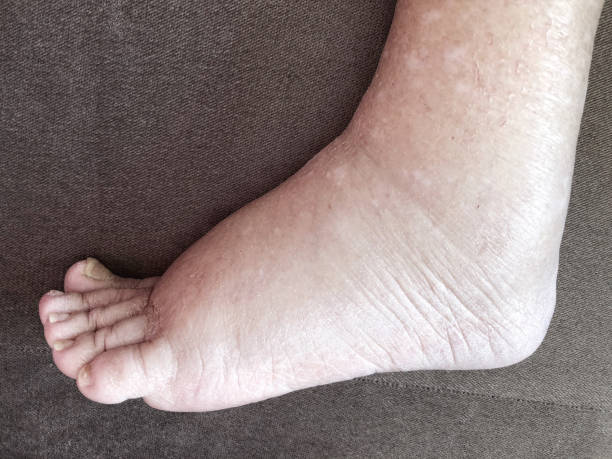Edema states
Edema is a swelling due to the expansion of interstitial fluid volume in tissues or an organ. Several clinical conditions present with edema, making it a critical clinical feature for diagnostic medicine. Edema can present in numerous forms including unilateral, bilateral, localized, or generalized edema. Therefore, it is vital to assess the unique presentation and mechanism of edema to understand how it relates to disease pathophysiology, clinical presentation, and treatment. This review will present an overview of the general and cellular characteristics of edema, the mechanism, and pathophysiology of edema, and how edema relates to a specific disease presentation and development.

- Symptoms
- Causes
- Treatments
Symptoms depend on the underlying cause, but swelling, tightness, and pain are common.
A person with edema may also notice:
- swollen, stretched, and shiny skin
- skin that retains a dimple after a few seconds of pressure
- puffiness of the ankles, face, or eyes
- aching body parts and stiff joints
- weight gain or weight loss
- decreased urine production
- fuller hand and neck veins
- visual anomalies
Symptoms can also depend on the type of edema a person has and which part of the body it affects.
After your healthcare provider makes an edema diagnosis, their next step is to identify what caused fluid to build up in your tissues. There are several possible causes for an edema diagnosis including:
- Gravity: If you spend a lot of time sitting or standing in one place for too long, water naturally pulls down into your arms, legs and feet (dependent edema).
- Weakened valves of your veins (venous insufficiency): When the valves in your veins are weak, it is hard for your veins to push blood back up to your heart, and leads to varicose veins and a buildup of fluid in the legs.
- Underlying medical conditions: Conditions like heart failure and lung, liver, kidney and thyroid diseases have edema as a symptom.
- Side effects from medication: Some drugs, like blood pressure or pain management medications, have edema as a side effect.
- Poor nutrition: If you aren’t eating a well-balanced diet or if you eat a lot of foods high in salt (sodium), fluid could build up in different parts of your body.
- Pregnancy: Swelling in your legs during pregnancy occurs as the uterus puts pressure on your blood vessels in the lower trunk of your body.
- Compromised immune system: An allergic reaction, infection, burns, trauma or clots can lead to edema.
Treatment will also depend Trusted Source on the cause of edema.
Diuretics are a type of medication. They help get rid of excess fluid by increasing the rate of urine production by the kidneys. Different types work in different ways.
A doctor will recommend a specific treatment plan for macular edema, pulmonary edema, and other types of edema.
A person with edema could also try wearing compression garments and doing specific exercises to help.
